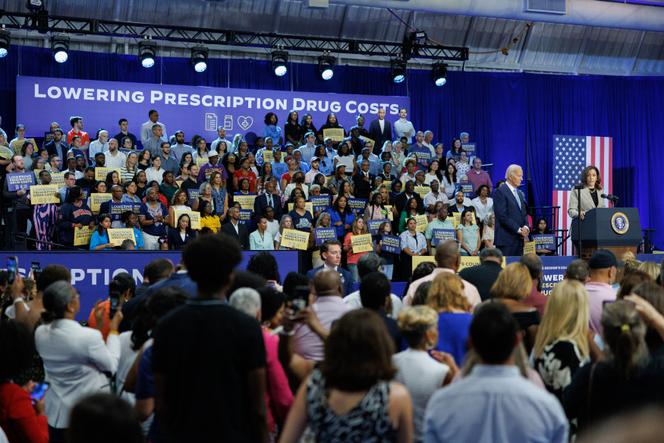


In his 1926 novel The Sun Also Rises, Ernest Hemingway imagined a dialogue between two alcoholic war veterans, where one asks the other how he went bankrupt. The answer became legendary: "Gradually, then suddenly." This phrase mirrors the current reality in the United States, as reflected in the plans of the two leading presidential candidates, Republican Donald Trump and Democrat Kamala Harris. The country's public deficit is out of control, reaching 6.3% of GDP for the fiscal year ending September 30, or $1.83 trillion (€1.66 trillion), according to the Congressional Budget Office. This deficit is double that of 2019, the last "normal" year of Trump's presidency.
The Biden administration is leaving behind a deteriorating fiscal situation, despite economic growth since the Covid-19 pandemic and near-full employment. The situation is about to get even worse. Trump's plan for more tax cuts would only speed up this trend, while Harris's plan for increased social spending doesn't solve the problem either. As Hemingway's words suggest, the crisis may come "suddenly" under Trump and "gradually" under Harris.
Federal spending represents 23.3% of GDP, while revenues are limited to 17%. Closing the gap would theoretically require raising taxes by 37% or drastically cutting spending, which neither candidate is prepared to do. Trump is considering entrusting Elon Musk, CEO of Tesla and SpaceX, with the task of reviewing public spending. In a study published on Monday, October 7, the Independent Committee for a Responsible Federal Budget deplored that "neither major candidate running in the 2024 presidential election has put forward a plan to address this rising debt burden."
Their central scenario predicts that under Harris, the debt would rise by $3.5 trillion to 133% of GDP by 2035, while under Trump it would soar by $7.5 trillion, namely 142% of GDP, up from 100% today. Without any policy changes, the debt would reach 125%. "Federal Debt Is Soaring. Here's Why Trump and Harris Aren't Talking About It," headlined the Wall Street Journal in a September 16 article, noting that "both candidates were part of administrations that produced growing deficits. Neither is likely to reverse that trend if elected."
Skepticism surrounds this alarmist view, as warnings about fiscal irresponsibility have been raised for years without triggering an actual crisis. In fact, the US has already experienced a period of financial laxity, such as in the 1960s, when heavy social and military spending led to capital flight, the abandonment of the dollar's convertibility to gold in 1971 and the subsequent collapse of the US dollar. The 2008 financial crisis was also a debt crisis, though primarily in the private sector, driven by excessive borrowing.
You have 67.62% of this article left to read. The rest is for subscribers only.
